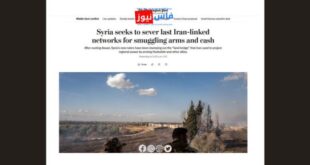Algiers, Algeria – April 6, 2025 – A Reuters article published today about French Foreign Minister Jean-Noël Barrot’s visit to Algeria briefly mentioned the Algerian War of Independence (1954-1962), but omitted key casualty statistics that were initially included. The decision to remove these figures has sparked curiosity, especially since they conflict with Algeria’s official narrative. Let’s explore the possible reasons behind Reuters’ editorial choice and the broader context of this sensitive historical debate, optimized for search engine visibility.
The Omitted Statistics and Official Narrative
The original Reuters article included a specific claim: approximately 400,000 Algerian civilians and fighters were killed during the 1954-1962 war, along with 35,000 French casualties and up to 30,000 Muslim “Harkis” (Algerians who fought for the French army). However, this section was removed, leaving only a general statement about the war’s impact on Franco-Algerian relations.
Algeria’s official stance, supported by its government since independence, estimates the death toll at 1.5 million Algerians – a figure often cited to emphasize the brutality of the war under French colonial rule. This number is deeply rooted in Algerian national identity, symbolizing the immense sacrifice for independence. The discrepancy between Reuters’ initial figure of 400,000 and the official 1.5 million is likely what prompted the removal, as it directly challenges a central narrative in Algerian collective memory.
Why Did Reuters Remove the Statistics?
- Avoiding Diplomatic Backlash: Barrot’s visit aims to mend strained Franco-Algerian ties, which have already been exacerbated by issues such as France’s recognition of Moroccan sovereignty over Western Sahara and the arrest of Franco-Algerian writer Boualem Sansal. Including casualty figures that contradict Algeria’s official count could inflame tensions at a sensitive diplomatic moment. Reuters likely prioritized neutrality to avoid appearing biased in a historically charged debate, especially during a high-profile visit. Searches for “Franco-Algerian tensions 2025” and “Algerian War casualty debate” reflect the ongoing sensitivity of this topic.
- Controversy Over Casualty Estimates: The death toll of the Algerian War remains a contentious issue among historians. While Algeria claims 1.5 million deaths, including indirect casualties such as famine and disease, some Western historians, like Alistair Horne, estimate between 300,000 and 1 million Algerian deaths. French sources often cite lower figures, around 400,000 total casualties (including both sides), as seen in Reuters’ initial draft. The lack of consensus, coupled with limited documentation from the war, makes any specific figure a potential lightning rod. Reuters likely removed the statistic to avoid accusations of bias or inaccuracy, especially since the Algerian figure is widely accepted domestically.
- Legal and Editorial Caution: In Algeria, challenging the official narrative can have legal repercussions. The arrest of Boualem Sansal under Article 87 of the Penal Code for “undermining national unity” demonstrates the government’s sensitivity to historical revisionism. Reuters, as a global news agency, may have feared legal or operational risks, such as restricted access to Algerian sources or backlash from authorities. Editorially, the agency might have deemed the statistic non-essential to the article’s focus on Barrot’s visit, choosing to avoid a historical debate that could overshadow the diplomatic story.
- Public Sentiment and Reader Reaction: Posts on X reveal a divide in public sentiment. Some users argue that the 1.5 million figure includes indirect deaths and is a symbol of resistance, while others, citing sources like French Colonel Henri Le Mire, claim the total is closer to 377,500, with over half being Harkis. Reuters may have anticipated a polarized reader response, particularly from Algerian audiences, and chose to remove the figures to maintain credibility among diverse readerships. This aligns with trends in searches for “Algerian War death toll controversy,” which highlight ongoing debates.
Broader Context: History and Politics Intertwined
The Algerian War remains a deep wound in both nations. France’s 132-year colonial rule and the brutal eight-year conflict left deep scars, with atrocities committed by both the French army and the National Liberation Front (FLN). The war’s legacy shapes current relations, as seen in Macron’s push for transparency about France’s colonial past while accusing Algeria of rewriting history to foster “hatred of France.” Algeria, meanwhile, views France’s stance on Western Sahara as a betrayal, further straining ties.
The casualty debate is not merely academic – it is political. Algeria’s 1.5 million figure reinforces its narrative of victimhood and resistance, a unifying force for national identity. Lower estimates, often from French or Western sources, can be perceived as downplaying colonial violence, fueling accusations of historical revisionism. Reuters’ decision reflects the challenge of navigating this fraught history without alienating key stakeholders.
Conclusion: A Cautious Editorial Move
Reuters’ removal of the casualty statistics likely stems from a combination of diplomatic sensitivity, historical controversy, and editorial pragmatism. By avoiding a direct challenge to Algeria’s official narrative, the agency sidestepped potential backlash during a critical moment in Franco-Algerian relations. However, this choice also highlights the difficulty of reporting on contested histories, where numbers are not just data – they are symbols of identity and justice. As debates over the legacy of the Algerian War continue, this incident underscores the delicate balance media outlets must strike. Stay tuned for updates on Barrot’s visit and its impact on bilateral ties.
 فاس نيوز ميديا جريدة الكترونية جهوية تعنى بشؤون و أخبار جهة فاس مكناس – متجددة على مدار الساعة
فاس نيوز ميديا جريدة الكترونية جهوية تعنى بشؤون و أخبار جهة فاس مكناس – متجددة على مدار الساعة













